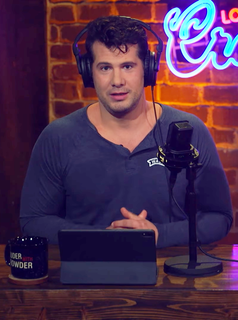A Quote by Ai Weiwei
Related Quotes
Since the 1960s, mainstream media has searched out and co-opted the most authentic things it could find in youth culture, whether that was psychedelic culture, anti-war culture, blue jeans culture. Eventually heavy metal culture, rap culture, electronica - they'll look for it and then market it back to kids at the mall.
Many teachers of the Sixties generation said "We will steal your children", and they did. A significant part of America has converted to the ideas of the 1960s - hedonism, self-indulgence and consumerism. For half of all Americans today, the Woodstock culture of the Sixties is the culture they grew up with - their traditional culture. For them, Judeo-Christian culture is outside the mainstream now. The counter-culture has become the dominant culture, and the former culture a dissident culture - something that is far out, and 'extreme'.
China is a great nation that offers the world a great culture, so many good things. I love the Chinese people and I hope there is the possibility of having good relations. We're in contact, we talk, we are moving forward but for me, to have as a friend a great country like China, which has so much culture and has so much opportunity to do good, would be a joy.
A free culture is not a culture without property; it is not a culture in which artists don't get paid. A culture without property, or in which creators can't get paid, is anarchy, not freedom. Anarchy is not what I advance here. Instead, the free culture that I defend in this book is a balance between anarchy and control.
A free culture supports and protects creators and innovators. It does this directly by granting intellectual property rights. But it does so indirectly by limiting the reach of those rights, to guarantee that follow-on creators and innovators remain as free as possible from the control of the past. A free culture is not a culture without property, just as a free market is not a market in which everything is free. The opposite of a free culture is a "permission culture" -- a culture in which creators get to create only with the permission of the powerful, or of creators from the past.





































